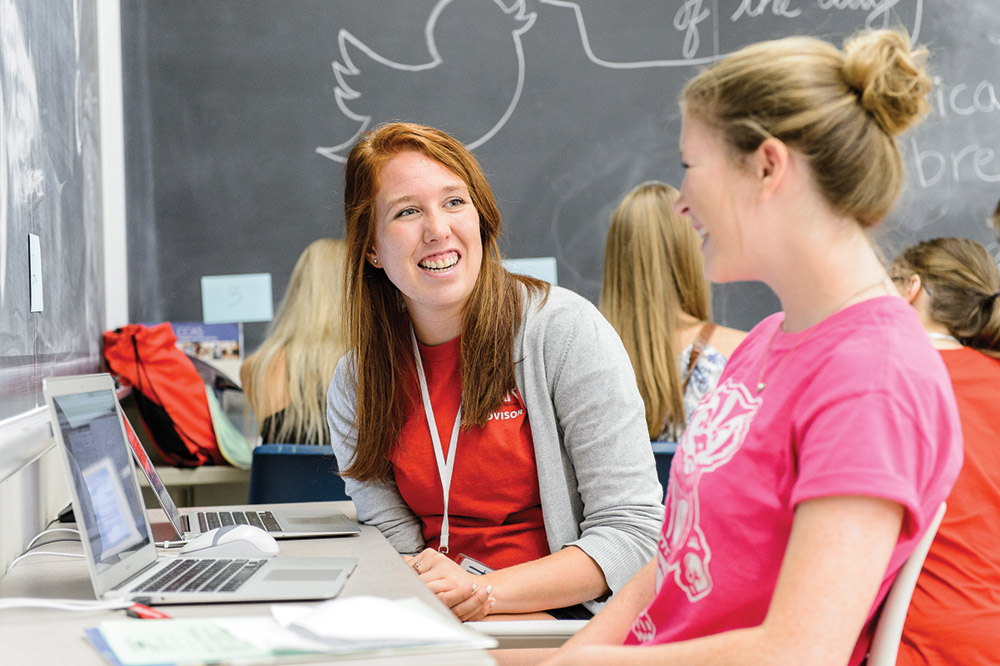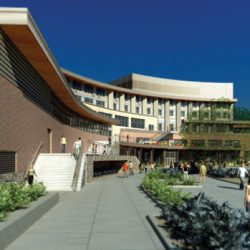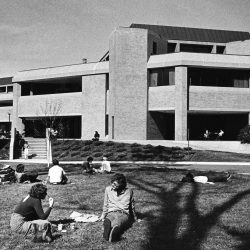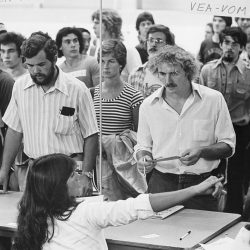SOAR
For most Badgers, it’s the first time to meet other new students. It’s the first chance to schedule classes. And it’s the first opportunity to learn the lyrics to “Varsity.”
Each summer, Student Orientation, Advising, and Registration — better known as SOAR — introduces incoming students to university life.
“We want students feeling like they’re coming to an institution where they can really see themselves fitting in and having an impact,” says Carren Martin, director of the Center for the First-Year Experience (CFYE), which runs the program. “SOAR has a concrete, practical nature. But it also needs to inspire a connection to campus that’s comforting and engaging and encouraging active participation.”
SOAR started when the UW ended in-person registration in the late 1980s. The program saw big changes in 2012, expanding academic advising across two days to give students more time to process new information.
Freshmen, transfer students, and international students attend sessions at Union South that cover academic and extracurricular opportunities, guided by student leaders from CFYE. Campus departments also set up shop to inform new students of their services.
During evening sessions, students gather in small groups, meeting people who will live in their residence halls, and starting conversations about topics including alcohol, sexual assault, and diversity issues. The night wraps up with the chance to bowl, scale Union South’s climbing wall, or play air hockey inside The Sett.
Parents of new students can attend sessions tailored specially for them that discuss campus safety and how relationships with their students may change during the next four years.
For Aaron Nichols ’16, leading SOAR sessions has given him the chance to get students excited about being Badgers. “I just like to see the potential that a new student has to succeed at this university and the person that they can become,” he says.
“On a really large campus like this,” says Martin, “some common experiences and something that students can use to relate to one another on a real basic level make it a really important tradition.”
Published in the Summer 2016 issue




Comments
No comments posted yet.